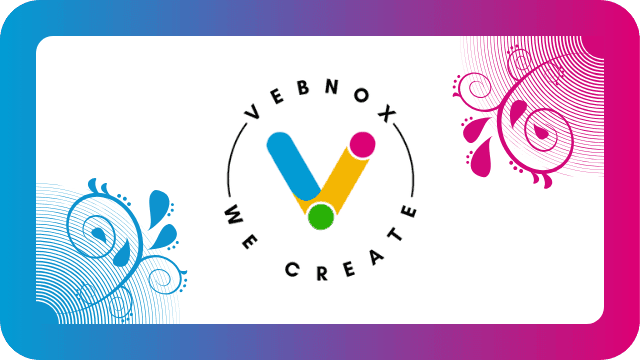Top Branding Solutions to Strengthen Your Business Identity
Table of Contents
Introduction to Branding Solutions
Branding solutions are essential strategies and services designed to shape and enhance a company’s identity in the marketplace. These solutions encompass a range of activities, including logo design, brand development, and corporate branding. By focusing on these elements, businesses can create a distinct and memorable brand that resonates with consumers. In essence, branding solutions provide the framework for building a unique business identity that not only reflects a company’s values and mission but also fosters recognition and loyalty among customers.
Effective branding plays a pivotal role in shaping consumer perception. When a business successfully communicates its brand story through visual branding, messaging, and customer experience, it establishes a strong emotional connection with its audience. This connection is crucial, as loyal customers are often willing to advocate for the brand, contributing to its overall market presence and success. Branding solutions also enable businesses to differentiate themselves from competitors. In crowded markets, a well-defined brand strategy can position a business as a leader, enhancing its online brand visibility and driving customer engagement.
The importance of branding extends beyond mere aesthetics; it influences how potential customers perceive a business’s credibility and professionalism. For instance, a well-designed logo can instantly convey quality and reliability, while cohesive branding across various platforms can reinforce a company’s message, making it more memorable. Moreover, branding solutions are not solely advantageous for large corporations; they are equally vital for small businesses striving to establish a robust business image. By utilizing effective brand consulting services, small enterprises can develop branding strategies that reflect their unique attributes, engage their target market, and ultimately achieve brand recognition.
In conclusion, branding solutions are a fundamental aspect of crafting a successful business identity. They encompass various tactics that impact consumer perception and loyalty, serving as a critical tool for businesses seeking to thrive in competitive landscapes.
Understanding Your Brand Essentials
In the realm of branding solutions, comprehending the core essentials of your brand is paramount. A well-defined business identity begins with a clear articulation of your mission, vision, values, and personality. These elements serve as the foundation upon which effective brand strategies are built, ensuring alignment with broader business goals while resonating with your target audience.
Your mission defines the fundamental purpose of your organization—why it exists and what it seeks to achieve. A concise and compelling mission statement not only articulates your ambitions but also acts as a guiding principle for decisions throughout your brand development journey. Coupled with the mission, the vision provides a forward-looking perspective, outlining where your business aspires to be in the future. Together, these elements form a strategic framework critical for brand positioning.
Equally important are your brand values, which encapsulate the guiding principles and ethics that inform your organizational culture and customer interactions. Values play a significant role in shaping the perception of your business image and contribute to establishing trust and loyalty among consumers. By clearly defining your values, you signal to potential clients and partners what they can expect from you and how you differentiate yourself in a crowded market.
Brand personality, on the other hand, reflects the human traits and characteristics associated with your brand. This aspect plays a crucial role in how consumers relate to your business; a lively personality may attract a different audience than a more serious tone. Ultimately, these brand essentials create a cohesive narrative that supports your overall brand strategy, enhancing your online brand visibility and facilitating a strong connection with your target market.
Creating a Memorable Brand Identity
Establishing a memorable brand identity is a critical step in ensuring a business’s long-term success. The brand identity serves as a visual and emotional representation of a company’s values, mission, and overall essence. To create an effective brand identity, businesses must develop visual elements such as logos, color schemes, and typography that accurately convey their messages while appealing to their target audience. A well-designed logo, for instance, acts as the cornerstone of corporate branding, encapsulating the essence of the brand in a single image. Custom logo design should be both unique and easily recognizable to maximize brand visibility and recognition.
Color schemes also play an essential role in brand identity. Different colors evoke specific emotions and associations; therefore, selecting an appropriate color palette is vital for expressing the brand’s personality. Consistent use of these colors across various platforms strengthens brand recognition and helps to establish a cohesive business image. Typography, similarly, contributes to the overall visual branding by reflecting the tone and style of the company’s communication. A thoughtful combination of typefaces can enhance the perception of professionalism and credibility, which are crucial elements in brand development.
Moreover, consistency across all branding materials is paramount. A branding agency should ensure that logos, colors, and typography remain uniform across digital platforms, print materials, and social media. This alignment fosters familiarity and trust among consumers, which is integral for effective branding and marketing strategies. Additionally, cohesive visual branding enhances brand positioning in a competitive marketplace, making it easier for consumers to differentiate your business from others. As such, engaging branding experts or utilizing brand consulting services can further hone a business’s brand strategy, leading to stronger brand development.
Leveraging Digital Branding Solutions
In today’s highly competitive market, leveraging digital branding solutions has become essential for businesses that aim to enhance their identity and connect with their target audience. The evolution of digital platforms has transformed how brands interact with consumers, making it crucial to adopt effective strategies such as social media branding, website design, and content marketing.
Social media branding plays a pivotal role in developing a business image. Platforms like Facebook, Instagram, and LinkedIn provide companies with a unique channel to engage with their audience, allowing for real-time interactions and feedback. By implementing a cohesive brand strategy across these channels, businesses can ensure consistent messaging, establish brand recognition, and foster customer loyalty. The expertise of branding experts in this realm can aid in crafting an impactful social media presence that captures the essence of the brand.
Website design is another vital component of digital branding. A well-designed website reflects a business’s identity and serves as the cornerstone of its online presence. Effective logo design, user-friendly navigation, and mobile optimization are critical elements that contribute to a strong digital identity. Companies that invest in professional branding services often see an increase in online brand visibility, as it attracts potential customers and enhances user experience.
Content marketing is similarly significant in reinforcing brand development. By producing valuable and relevant content, businesses can position themselves as thought leaders in their industry. This not only contributes to improved search engine rankings but also strengthens relationships with existing customers while attracting newcomers. Engaging content paired with strategic brand consulting services can elevate a business’s image and drive consistent growth.
In conclusion, embracing digital branding solutions is an effective way to strengthen a business’s identity. From social media interactions to a compelling website and engaging content, each element significantly contributes to overall brand development and recognition in the marketplace.
Building Brand Voice and Messaging
Establishing a coherent brand voice is an essential aspect of developing a strong business identity. The brand voice encapsulates the personality and values of the brand, allowing it to connect authentically with its audience. In order to build an effective brand voice, businesses must first understand their target demographic, including their preferences, values, and communication styles. This understanding guides the brand messaging and ensures it resonates with the audience, enhancing brand recall and loyalty.
Crafting key messages and taglines is a critical component of brand strategy. These elements should succinctly convey the essence of the brand while aligning with the overall business goals. A powerful tagline can communicate what sets the brand apart, making it memorable and impactful. In this regard, businesses often turn to branding experts or branding agencies to assist in the development of these essential statements. Tailoring messaging to reflect the unique attributes of the brand can enhance its positioning in a competitive market.
Furthermore, consistency across all communication channels is paramount. Whether through digital branding efforts or corporate branding policies, maintaining a unified voice strengthens brand recognition and trust. This involves applying the established voice in various formats, including social media posts, website content, and marketing materials. Each touchpoint serves as an opportunity to reinforce the business image and deepen relationships with customers.
A strong brand voice facilitates effective brand consulting opportunities, allowing businesses to refine their messaging continually. Regular evaluation of the brand’s communications ensures alignment with the evolving audience landscape. Ultimately, the goal of precise brand voice development is to create an engaging and recognizable identity that fosters loyalty among consumers while enhancing overall brand visibility.
Utilizing Customer Feedback for Branding Success
In the dynamic landscape of business, the significance of customer feedback cannot be overstated. It serves as a critical tool in shaping and refining branding solutions that resonate with the target audience. By actively collecting and analyzing consumer insights, businesses can align their brand strategy with customer expectations. This alignment is essential for enhancing overall brand perception and fostering brand loyalty.
Customer feedback provides invaluable information about the strengths and weaknesses of a business’s branding efforts. Through various channels such as surveys, social media engagement, and direct interactions, businesses can gather insights on customer preferences, pain points, and overall experiences. These insights enable companies to make informed decisions regarding corporate branding and brand development strategies, ensuring they remain relevant in a competitive marketplace.
Moreover, leveraging customer feedback in branding allows businesses to understand their unique branding opportunities. When customers express their thoughts on a logo design or specific marketing campaigns, these responses can guide branding experts in customizing their approach. Custom logo design and visual branding initiatives can be adjusted based on real-time data, optimizing brand recognition and online brand visibility.
Utilizing feedback also helps refine brand positioning. A strong business identity often stems from a deep understanding of customer desires and expectations. Incorporating customer opinions into brand consulting services equips businesses with the knowledge to enhance their corporate branding. This process ultimately results in a more compelling business image that aligns with consumer values.
In summary, the integration of customer feedback into branding initiatives is vital for enhancing a business’s branding and marketing effectiveness. Brands that prioritize consumer insights are better positioned to create a lasting impact and foster authentic connections with their audience, ultimately driving brand development and ensuring long-term success.
The Role of Storytelling in Branding
Storytelling has emerged as a pivotal element in developing robust branding solutions that effectively establish a business identity. This approach enables organizations to create emotional connections with their customers, fostering loyalty and affinity toward the brand. Through the strategic integration of narratives into branding efforts, companies can convey their values, mission, and unique selling propositions in a way that resonates deeply with their target audience.
To harness the power of storytelling in branding, it’s essential to employ effective techniques that amplify brand recognition and positioning. One common technique is the use of relatable characters that embody the brand’s values. This allows customers to see themselves within the narrative, creating a personal connection with the business image. For instance, brands like Dove have adeptly utilized storytelling to communicate their commitment to real beauty, featuring real women and their personal journeys in their advertisements. This not only strengthens their corporate branding but also reinforces their brand strategy by directly engaging with their audience’s emotions.
Another effective storytelling method involves highlighting the brand’s origins or evolution. This technique can showcase the struggles and triumphs behind the brand’s journey, providing authenticity to the brand development process. For example, Nike’s “Just Do It” campaign often shares stories of athletes overcoming adversity, which aligns with their brand identity of perseverance and empowerment. Such narratives not only enhance online brand visibility but position Nike as a relatable and motivating force within the sports community.
Incorporating storytelling into branding requires careful planning and execution. Brands can engage branding experts to help curate a narrative that authentically reflects their values. By emphasizing emotional connections and appealing through compelling stories, businesses can create unique branding experiences that set them apart from the competition. Ultimately, storytelling is a potent tool in branding and marketing
Implementing Brand Strategies Across Channels
In today’s competitive marketplace, implementing effective brand strategies across multiple marketing channels is pivotal for establishing a strong business identity. A cohesive approach across both online and offline platforms can significantly enhance brand recognition and contribute to a company’s long-term success. Businesses must ensure that their branding solutions are consistently presented, which aids in reinforcing their corporate branding efforts.
Each channel—be it print, digital, or in-person events—serves a unique purpose in a brand’s overall strategy. For instance, digital branding allows for real-time engagement through social media, email marketing, and online advertising, creating opportunities for brands to establish a strong online brand visibility. On the other hand, traditional print marketing, such as brochures or business cards, plays a crucial role in providing tangible touchpoints, thereby enhancing the credibility of the business image.
Moreover, integrating brand development services across these channels ensures that the messaging, visuals, and overall branding remain consistent. This requires a well-thought-out brand positioning strategy, which articulates how a company wants to be perceived in the marketplace. Branding experts recommend using defined brand guidelines to maintain this consistency. Effective logo design and unique branding elements, such as color schemes and typography, must be uniformly applied to all marketing materials, reinforcing the brand’s identity.
Furthermore, engaging in brand consulting services can provide valuable insights into how to strategically align messaging across diverse platforms. This integrative approach not only benefits large corporations but also empowers branding for small businesses to present a professional image and stand out in a saturated market. Ultimately, a well-executed brand strategy that spans multiple channels will lead to improved customer loyalty, enhanced brand recognition, and a significant competitive edge.
Measuring Brand Performance and Adapting Strategies
To ensure the effectiveness of any branding solutions, it is vital for businesses to measure brand performance through various metrics. Key indicators of success include brand awareness, engagement, and customer loyalty. Establishing a consistent framework for tracking these metrics is essential for understanding the efficacy of your brand strategy.
Brand awareness reflects how recognizable your brand is to potential customers. Tools such as surveys and social media analytics can help businesses assess their online brand visibility. Additionally, tracking website traffic and social media mentions can provide insights into how many individuals are exposed to your brand. A high level of awareness indicates that your branding efforts, whether through logo design or corporate branding initiatives, are effective in capturing attention.
Engagement metrics, such as likes, shares, and comments on social media platforms, serve as essential indicators of audience interaction with your brand. By monitoring these levels of engagement, businesses can gauge the effectiveness of their brand development efforts and adjust their approach accordingly. A robust engagement rate not only signifies strong brand resonance but also builds a sense of community around your business identity.
Customer loyalty is another critical component to evaluate. Repeat purchases and customer retention rates can indicate how well your branding and marketing strategies resonate with your audience. Implementing brand consulting services can provide deeper insights into consumer behavior and preferences, enabling you to tailor your corporate branding to meet their needs more effectively.
By assessing these metrics regularly, businesses can adapt their branding strategies to ensure relevance and effectiveness. In summary, measuring brand performance is not merely a task but an ongoing process that aligns your business image with market demands and shifts in consumer preferences. This adaptive approach is essential for maintaining strong brand recognition and establishing a lasting presence in the competitive landscape.





Comments are closed